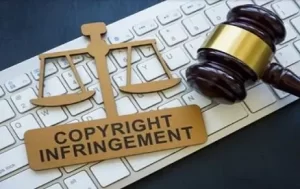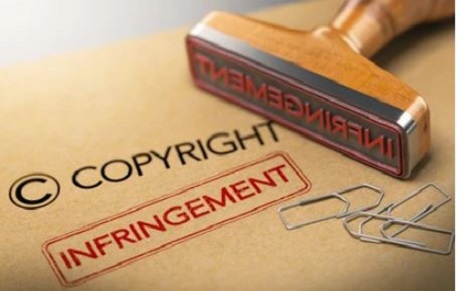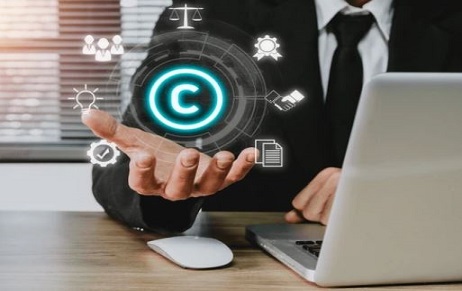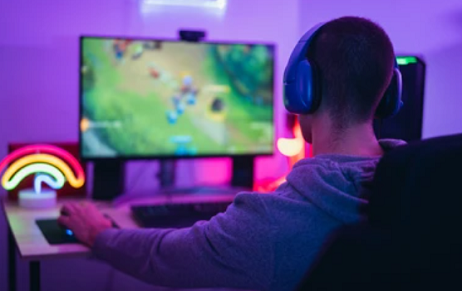Introduction In the contemporary digital environment, the problem of piracy has become one of the…
Criminal Copyright Infringement : A Comparative Study in India and the US
Introduction
The use or production of protected materials without the copyright holder’s permission is copyright infringement. Copyright infringement occurs when the rights granted to the copyright holder are being violated by a third party. Many forms of media, such as movies and music, suffer from copyright infringement. If a case of infringement is filed, the amount of money that the copyright holder might have to set aside for legal fees can be significant.
[Image Source : Shutterstock]
According to the WIPO, copyright is a legal term that refers to the rights that creators and authors have when it comes to their works. Works can range from paintings and sculptures to computer programs and maps.
Copyright infringement under the Indian Copyrights act, 1957.
Under copyright laws, the rights granted to the holder include the right to make derivative works, display, reproduce, and distribute the protected work. The unauthorized use of such works, without the permission granted by the copyright owner, is copyright infringement. If a copy of a work is labeled as the work of a particular author or publisher, it is presumed that the author or the publisher is the one who wrote it.
Remedies available
If a copyright owner is not happy with the actions of an individual or entity that infringes their rights, they can file a civil case against them. This type of case can be filed in a court that has jurisdiction over the issue. The court can also provide the copyright owner with various types of remedies such as damages and accounts.
If a copyright owner is not happy with the actions of an individual or entity that infringes their rights, they can file a civil case against them. This type of case can be filed against a company or an artificial joint venture. The person who was in charge at the time of the infringement was also liable for the company’s actions.
The goal of copyright is to provide adequate safeguards to protect the rights of authors to their creations. It also aims to encourage creativity and prevent unauthorized uses of their works. The Act protects the works of dramatic, musical, and literary artists from being exploited for commercial purposes. The term “literary,” “dramatic,” and “media” copyright period is 60 years following the death of the author.
If a person knowingly violates the copyright in a work, then that person’s actions are considered a criminal offense. For instance, if a person is convicted of copyright infringement, they can expect to get a sentence of up to six months in prison and a fine of up to Rs. 50,000/-. For repeat offenders, the minimum sentence is one year in prison and a fine of Rs.1 lakh/-.
Copyright in joint authorship refers to the death of the author. It provides a broadcasting right to every broadcaster for 25 years from the start of the year following the broadcast’s completion. The Act provides that the government can establish a copyright board to resolve disputes and grant licenses. Punishment for infringement is also available for up to three years.
In a case involving Knit Pro International v. the State of NCT[1] the Supreme Court ruled that copyright infringement is a non-bailable offense that can be punished with a sentence of up to seven years in prison. This means that the accused will no longer be able to post a bail bond. The court also said that the courts will now have the power to determine the appropriate punishment for this crime.
In a case involving Krishika Lulla and Ors. Vs. Shyam Devkatta & Another[2], the court ruled that copyright infringement can be brought against those who copy and reproduce a plotline or title from a film. The plaintiff in the case, who was also the screenwriter of the story titled “Desi Boys,” had registered the synopsis of the film with the Film Writers Association. After seeing the synopsis of the film, he forwarded it to his acquaintances. However, since he was not able to bring a case against the producers or the distributors of the film due to copyright law, he filed a complaint against them. He was also granted an exemption from filing a case under Section 482 of the Code of Criminal Procedure and Section 63 of the Act. The issue that the court addressed was whether the title of a book or a film, on its own, is considered a copyright work that can be infringed. The court ruled that a film’s title does not have to be a “work” in order to be eligible for copyright infringement.
Criminal copyright infringement in the US
In most cases, copyright infringement can be brought against the individual in a civil court, while in some cases, the person is prosecuted for the same offense. However, the three-year limitation on filing a civil case ends after the filing of a criminal case has already occurred.
If the prosecutor can prove that the defendant committed copyright infringement, he or she will have to show that they were aware that the work they were distributing was for commercial purposes. They will also have to show that they intentionally made the work available on a computer network so that others could access it.
When it comes to deciding what conduct is enough to be considered willfulness, courts usually look into a defendant’s actions after they have been given legal notice that their conduct was illegal or after they have received a cease and desist letter from a film studio. For instance, if you repeatedly take photos and record content before a movie’s release, then disregarding the cease and desist letters sent by a studio is likely to be regarded as willful.[3]
Remedies
If you received a cease and desist notice warning you about your illegal activities, you might be wondering how the government decides on criminal charges related to copyright infringement. The policy of the federal government is that all cases that are considered to be meritorious should be prosecuted. Federal prosecutors have two main factors that they consider when it comes to deciding on whether or not to prosecute copyright infringement cases.
One of the most important factors that they consider is the number of copies that are involved in the offense. They also consider the legal issues surrounding the issue and whether or not they can successfully argue the case against the accused.
Copyright infringement can be punished by up to five years in prison and a fine of up to $250,000. A first-time offender who distributes at least 10 phonorecords or copies of unauthorized works within a 180-day period could also be fined up to $250,000. If you have been convicted of copyright infringement once, you can expect to receive a sentence of up to 10 years in prison, as well as a fine of up to $250,000. For repeat offenders, those found guilty of a misdemeanor can be imprisoned for up to a year, and they can also be fined up to $100,000. Those found guilty of trafficking in technology or circumventing access controls to get around copyright restrictions could be fined up to $500,000. For subsequent offenses, they can be fined up to a million dollars.[4]
Conclusion
The Supreme Court has stated that unless the law is changed to provide a clear distinction between the various types of copyright infringement, then it will not be able to effectively investigate and prosecute cases. This ruling has been regarded as a threat to free speech and civil liberties. The provisions of the Act, which include the criminal sanctions and the criminal liability, are a step in the right direction. The goal of these laws is to punish those who commit copyright infringement in a way that is both effective and fair. In addition to these, the legislation also provides for the seizure of illegally copied copies and the delivery of these to the rightful owners. The provisions of the Act are also aimed at preventing copyright infringement. They provide for the punishment of those who commit this crime, as well as the seizure of illegally copied copies.
Author: P Rama Kalyan, SLS Nagpur, 4th Year, in case of any queries please contact/write back to us via email to chhavi@khuranaandkhurana.com or at IIPRD.
[1] Knit Pro International v. State (NCT of Delhi), (2022) 10 SCC 221
[2] MANU/SC/1174/2015
[3] https://www.justice.gov/archives/jm/criminal-resource-manual-1847-criminal-copyright-infringement-17-usc-506a-and-18-usc-2319#:~:text=There%20are%20four%20essential%20elements,advantage%20or%20private%20financial%20gain.



